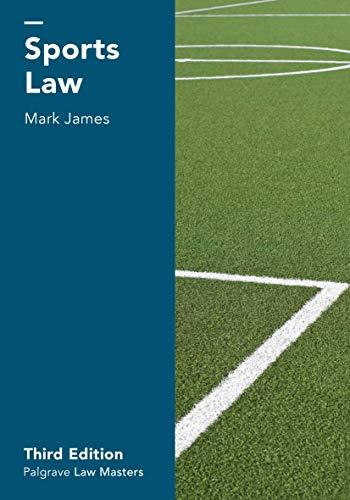Question
Link to article https://drive.google.com/file/d/13BiF31xWL3MG_PJGUAQXXHRvhYYGP0wh/view?usp=drivesdk 1) What are the facts that gave rise to the Morse v Frederick case? 2) In part 2 of the author's
Link to article
https://drive.google.com/file/d/13BiF31xWL3MG_PJGUAQXXHRvhYYGP0wh/view?usp=drivesdk
1) What are the facts that gave rise to the Morse v Frederick case?
2) In part 2 of the author's article, he discusses a number of law review articles that were published before his that did case-studies of other free speech cases from public schools. One of the articles was written in 2002 by Andrew Miller. What conclusion does Miller come to when comparing Tinker with the Kuhlmeier and Fraser cases?
3) The author also talks about another article by Justin Peterson in 2005 where he refers to a case from Volusia County Florida called Denno. What were the facts of the Denno case?
4) According to Peterson, what guidance if any did Tinker give in the Denno case?
5)The author mentions an article by Jerry Chaing from 2007 where he says schools can restrict student speech under particular circumstances? What are they?
6) The author points out that Chaing concludes the burden of proof on the school is different in Tinker compared to Fraser. Explain his conclusion.
7) In part 3 of the article, the author starts his detailed discussion of the Morse case itself. He begins with talking about the majority opinion authored by Chief Justice Roberts. What 2 principles does Roberts embrace from the Fraser case in crafting the majority opinion?
8) Chief Justice Roberts acknowledges that the holdings from Tinker and Fraser could be "at odds" with each other. According to the author, does the Court try to resolve the confusion in Morse? If so, how so -- if NOT what does Roberts do instead?
9) Does Justice Thomas write a concurring or dissenting opinion in Morse? According to the article, does Justice Thomas agree with the Tinker standard?
10) According to the article, does Justice Thomas believe students have speech right under the 1st Amendment of the Constitution? If so, explain -- IF NOT, How does he reason his position?
11) What legal doctrine does Justice Thomas rely on, that we talked about in the context of a previous article earlier this semester? Define the doctrine and explain how it related to his conclusion.
12) Justice Alito also authored an opinion - was it a concurring or dissent? Does he agree or disagree with Tinker?
13)Does Alito feel the Morse decision is a narrow or broad decision? Explain your answer.
14) Did Alito agree or disagree with Thomas' opinion? What did Justice Alito say about Thomas' conclusion?
15) What were the basic facts of the Tinker case?
16) Justice Fortas wrote the Tinker opinion. According to the article, if a topic of student speech creates "controversy" is it constitutional for the school to automatically suppress the speech? Explain your answer.
17)What were the facts of the Fraser case?
18) What did Justice Berger write in his opinion in Fraser regarding student speech and teaching students about social behavior?
19) What were the facts of the Kuhlmeier case?
20) What does the author conclude about from his analysis of the Morse case and Robert's majority opinion?
Step by Step Solution
There are 3 Steps involved in it
Step: 1

Get Instant Access to Expert-Tailored Solutions
See step-by-step solutions with expert insights and AI powered tools for academic success
Step: 2

Step: 3

Ace Your Homework with AI
Get the answers you need in no time with our AI-driven, step-by-step assistance
Get Started


